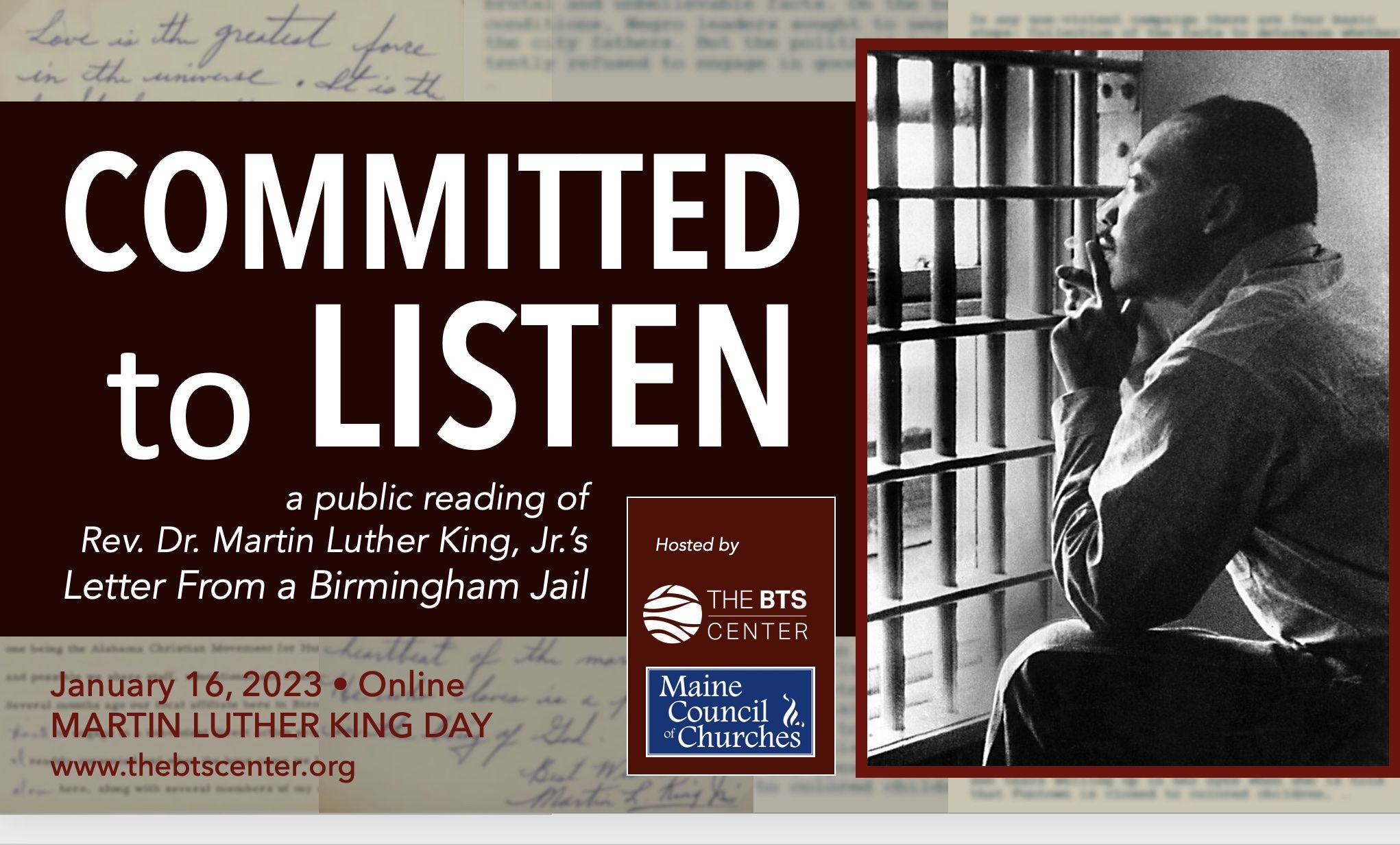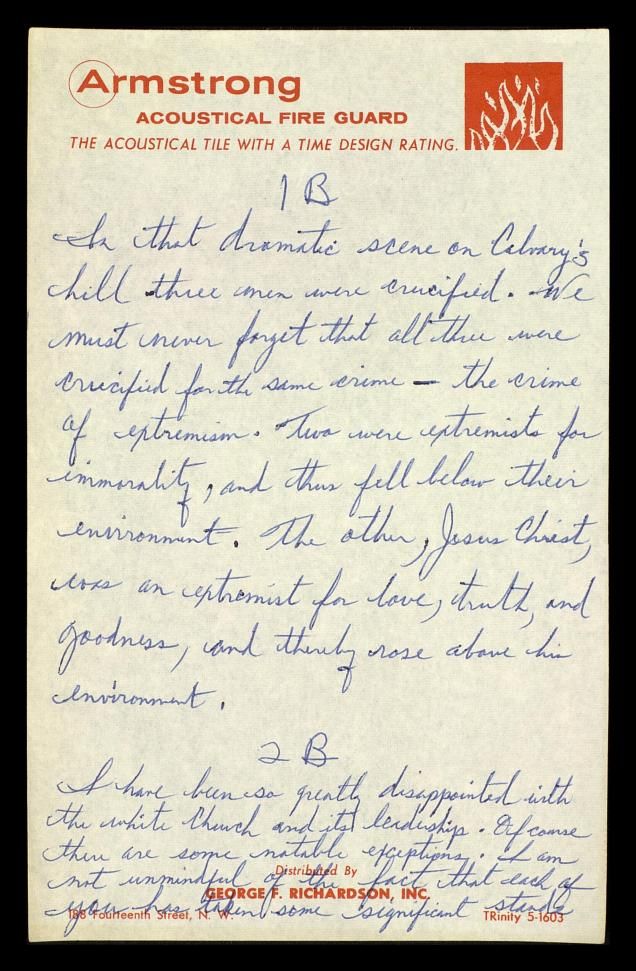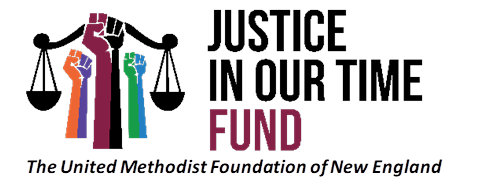
Committed to Listen: MLK Day 2023
Occurred on Monday, January 16, 2023
On April 16, 1963, from his cell in a Birmingham City Jail, Rev. Dr. Martin Luther King, Jr. penned a public letter addressed to several of Alabama's leading white religious leaders, who had openly questioned the pace and the confrontational nature of civil rights demonstrations.
This "Letter from Birmingham Jail" has been called "the most important written document of the civil rights era."
In the 21-page, typed, double-spaced essay, Dr. King responds to the criticisms these eight white clergymen had made in their recent "A Call for Unity" statement, in which they agreed that social injustices existed but argued that the battle against racial segregation should be fought solely in the courts, not the streets.
“It is unfortunate that demonstrations are taking place in Birmingham," Dr. King agreed, "but it is even more unfortunate that the city's white power structure left the Negro community with no alternative.”
Dr. King argued that racial violence and oppression demanded a more urgent response — that lukewarm words of support were inadequate, that only nonviolent direct action would result in real progress toward change.
"You may well ask: 'Why direct action? Why sit-ins, marches and so forth? Isn’t negotiation a better path?' You are quite right in calling for negotiation. Indeed, this is the very purpose of direct action. Nonviolent direct action seeks to create such a crisis and foster such a tension that a community which has constantly refused to negotiate is forced to confront the issue."
Because the work of racial justice is far from finished, and because Rev. Dr. King's challenge to religious communities and leaders is as relevant today as it was 60 years ago, we came together on Martin Luther King, Jr. Day 2023 for a public reading of the Letter.
Co-hosted by The BTS Center and the Maine Council of Churches, this event included a public reading featuring multiple voices, contemplative music, and space for reflection.
View the event below, recorded on January 16, 2023:
Support the Outdoor Equity Fund
Selected words from Dr. King's Letter from a Birmingham Jail:
“Injustice anywhere is a threat to justice everywhere. We are caught in an inescapable network of mutuality, tied in a single garment of destiny. Whatever affects one directly, affects all indirectly. Never again can we afford to live with the narrow, provincial 'outside agitator' idea. Anyone who lives inside the United States can never be considered an outsider anywhere within its bounds.”
Rev. Dr. Martin Luther King, Jr.'s handwritten notes, from The King Center Archive

A re-creation of Rev. Dr. Martin Luther King Jr.'s cell in Birmingham Jail at the National Civil Rights Museum
Event Cohosts

Maine Council of Churches
Rooted in the Hebrew and Christian Scriptures, the mission of the Maine Council of Churches is to inspire congregations and persons of faith to unite in good works that build a culture of justice, compassion, and peace. Founded in 1938 and guided by seven member denominations, the Council works with partner organizations throughout the state, along with volunteers and parishioners in about 550 churches, to witness and advocate toward the vision of a sustainable, just, and compassionate world.

The BTS Center
With roots dating back to 1814, The BTS Center is a private foundation in Portland, Maine, building on the legacy of the former Bangor Theological Seminary. Today The BTS Center seeks to catalyze spiritual imagination, with enduring wisdom, for transformative faith leadership. Guided by the vision of human hearts renewed, justice established, and creation restored, The BTS Center offers theologically grounded programs of continuing education and spiritual formation, including workshops and retreats, learning cohorts, public conversations, and projects of applied research, all focused around spiritual leadership in a climate-changed world.



